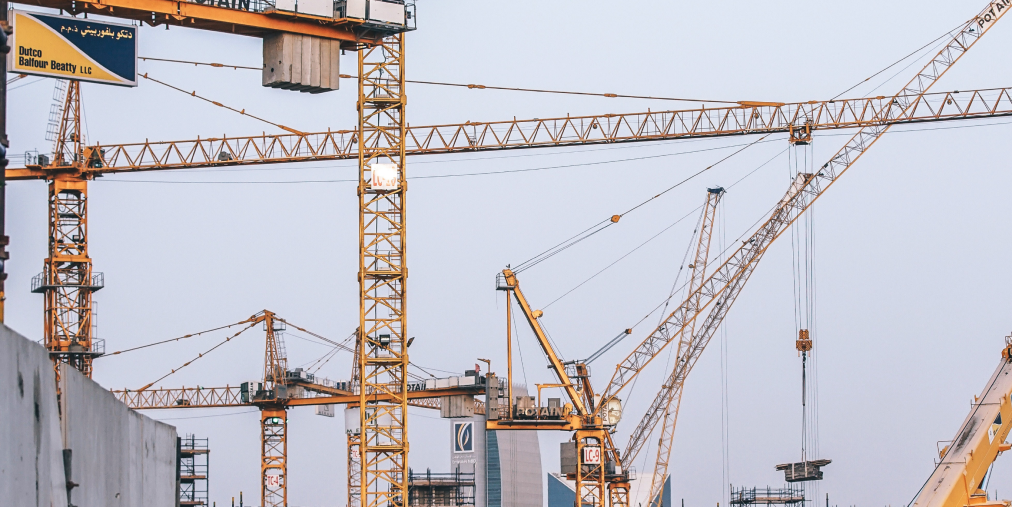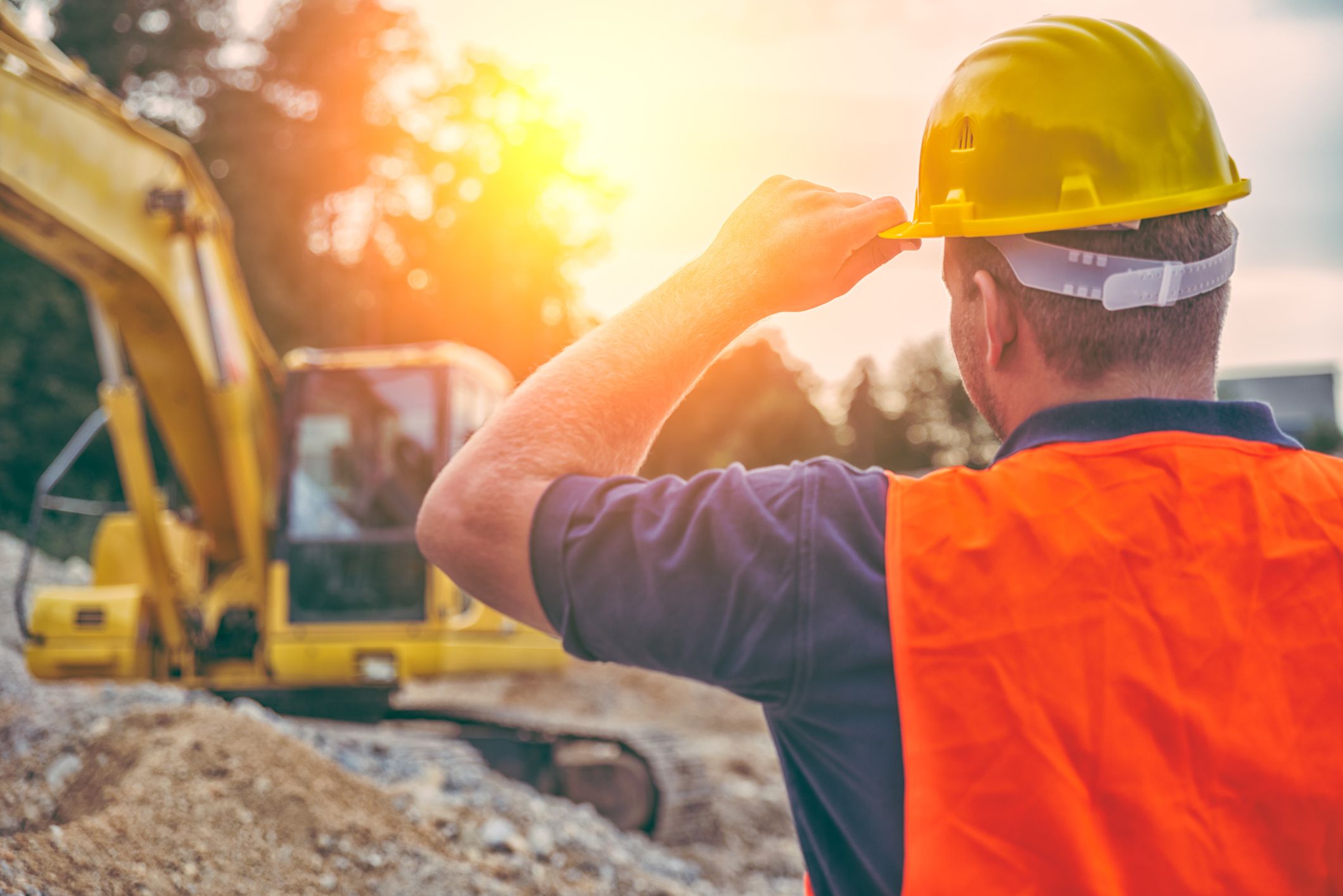Construction Equipment Rentals in Tuscaloosa, AL: Everything You Required for Your Task Site
Construction Equipment Rentals in Tuscaloosa, AL: Everything You Required for Your Task Site
Blog Article
Exploring the Financial Advantages of Renting Building And Construction Equipment Contrasted to Possessing It Long-Term
The choice between renting and possessing building equipment is crucial for financial management in the industry. Renting out deals immediate cost savings and functional adaptability, permitting firms to allot sources more effectively. On the other hand, possession includes significant long-lasting financial commitments, consisting of upkeep and depreciation. As specialists consider these alternatives, the influence on money circulation, job timelines, and modern technology gain access to comes to be significantly substantial. Comprehending these subtleties is important, specifically when taking into consideration just how they align with specific project requirements and monetary techniques. What aspects should be prioritized to make certain optimal decision-making in this complicated landscape?

Expense Comparison: Leasing Vs. Owning
When assessing the monetary implications of having versus renting building equipment, a comprehensive price comparison is essential for making informed decisions. The option in between leasing and possessing can considerably affect a company's profits, and comprehending the connected prices is critical.
Leasing building equipment typically includes lower ahead of time expenses, permitting organizations to allot funding to other functional needs. Rental costs can gather over time, possibly exceeding the expense of possession if equipment is required for an extended period.
Alternatively, possessing building and construction tools calls for a substantial initial investment, in addition to recurring prices such as financing, devaluation, and insurance policy. While ownership can lead to lasting financial savings, it additionally connects up capital and might not offer the exact same degree of versatility as renting. Additionally, having devices demands a dedication to its utilization, which may not always straighten with job needs.
Eventually, the choice to rent out or own ought to be based upon a thorough evaluation of specific project needs, monetary capability, and lasting strategic goals.

Maintenance Costs and Obligations
The selection between leasing and possessing building and construction devices not just includes financial considerations yet also encompasses ongoing upkeep expenditures and duties. Possessing tools needs a considerable commitment to its maintenance, which consists of regular evaluations, repair work, and prospective upgrades. These responsibilities can swiftly gather, bring about unforeseen costs that can strain a budget.
In contrast, when renting devices, upkeep is normally the responsibility of the rental firm. This plan permits professionals to stay clear of the economic concern connected with wear and tear, along with the logistical challenges of organizing repairs. Rental agreements frequently consist of arrangements for upkeep, suggesting that professionals can concentrate on finishing jobs instead than stressing over devices problem.
Furthermore, the varied array of equipment available for lease enables business to select the most current models with sophisticated technology, which can improve performance and productivity - scissor lift rental in Tuscaloosa, AL. By choosing leasings, services can avoid the long-term obligation of equipment devaluation and the linked upkeep headaches. Inevitably, evaluating upkeep costs and responsibilities is vital for making a notified choice concerning whether to rent out or possess construction devices, significantly affecting total job costs and functional effectiveness

Depreciation Effect On Ownership

A considerable variable to take into consideration in the decision to possess construction equipment is the impact of devaluation on general possession expenses. Depreciation represents the decrease in worth of the devices gradually, affected by variables such as usage, damage, and developments in modern technology. As tools ages, its market price lessens, which can significantly affect the proprietor's financial setting when it comes time to sell or trade the tools.
For building business, this depreciation can convert to considerable losses if the devices is not used to its max capacity or if it ends up being obsolete. Owners should make up devaluation in their economic projections, which can cause higher general costs contrasted to her response leasing. Furthermore, the tax obligation ramifications of devaluation can be complex; while it might offer some tax obligation advantages, these are commonly offset by the reality of minimized resale value.
Ultimately, the burden of depreciation highlights the significance of comprehending the long-lasting financial dedication associated with possessing building tools. Companies must thoroughly review exactly how typically they will use the tools and the prospective monetary influence of devaluation to make an educated choice about ownership versus renting.
Financial Versatility of Renting Out
Renting out construction equipment supplies considerable financial flexibility, enabling companies to allot resources more successfully. This versatility is specifically important in a sector characterized by rising and fall task demands and differing workloads. By choosing to lease, businesses can stay clear of the significant funding expense needed for buying devices, protecting capital for various other functional needs.
Furthermore, renting devices makes it possible for business to tailor their devices choices to details project needs without the long-lasting commitment connected with ownership. This implies that companies can conveniently scale their equipment inventory up or down based upon anticipated and existing project needs. As a result, this versatility lowers the risk of over-investment in machinery that may come to be underutilized or obsolete in time.
Another economic benefit of renting out is the potential for tax obligation benefits. Rental repayments are often thought about general expenses, permitting immediate tax reductions, unlike devaluation on owned and operated tools, which is spread out over numerous years. scissor lift rental in Tuscaloosa, AL. This immediate expense recognition can better enhance a business's money setting
Long-Term Task Factors To Consider
When assessing the long-lasting demands of a construction service, the decision between owning and renting tools becomes more intricate. For projects with extended timelines, purchasing tools might seem helpful due to the capacity for reduced overall prices.
Additionally, technological developments present a substantial consideration. The building industry is developing quickly, with brand-new equipment offering enhanced effectiveness and safety and security functions. Renting out permits companies to access the most up to date innovation without devoting to the high upfront prices connected with acquiring. This flexibility is specifically useful for organizations that handle varied tasks calling for various kinds of devices.
Furthermore, monetary security plays a crucial role. Possessing tools often involves significant resources used tractor loader backhoe for sale near me investment and depreciation issues, while leasing allows for even more predictable budgeting and cash flow. Ultimately, the choice between leasing and possessing should be straightened with the strategic goals of the construction organization, thinking about both current and awaited job demands.
Conclusion
In conclusion, leasing construction equipment provides significant economic advantages over long-lasting ownership. Eventually, the decision to lease rather than own aligns with the dynamic nature of building and construction projects, permitting for versatility and access to the most current devices without the economic burdens associated with ownership.
As tools ages, its market worth decreases, which can significantly affect the owner's financial position this website when it comes time to sell or trade the equipment.
Leasing construction devices provides considerable financial versatility, permitting firms to designate sources more efficiently.Furthermore, renting equipment makes it possible for companies to tailor their tools options to particular task needs without the lasting commitment associated with ownership.In conclusion, renting out building and construction tools provides considerable monetary benefits over lasting possession. Ultimately, the decision to lease rather than own aligns with the vibrant nature of construction jobs, allowing for flexibility and access to the newest tools without the financial worries connected with possession.
Report this page